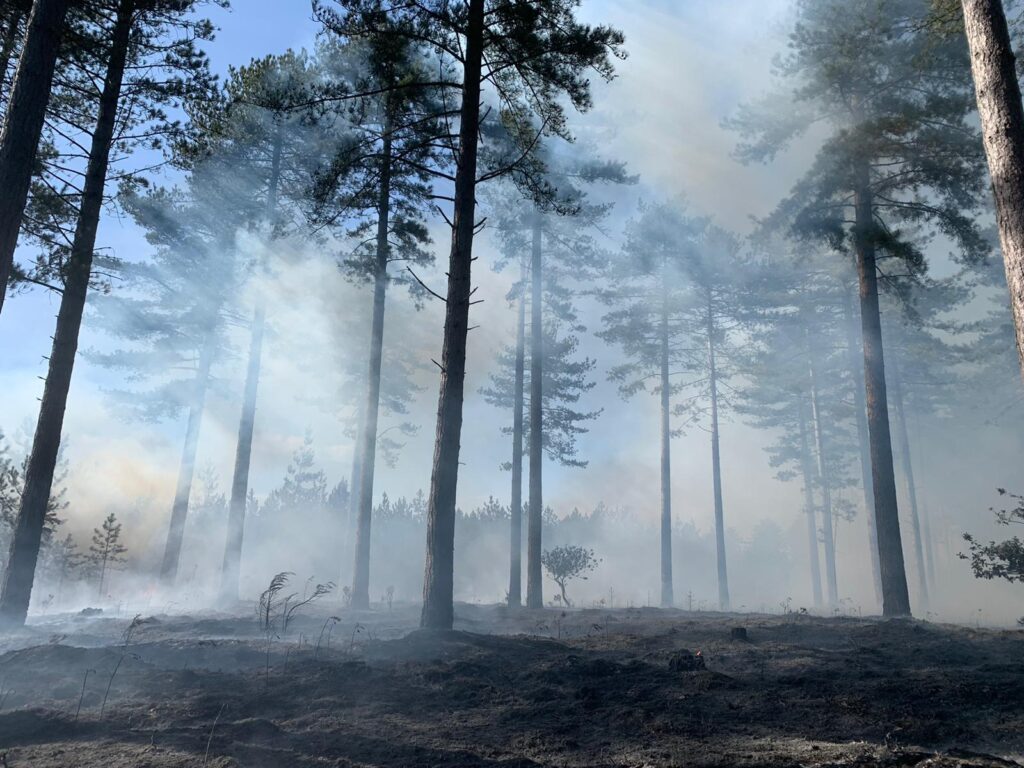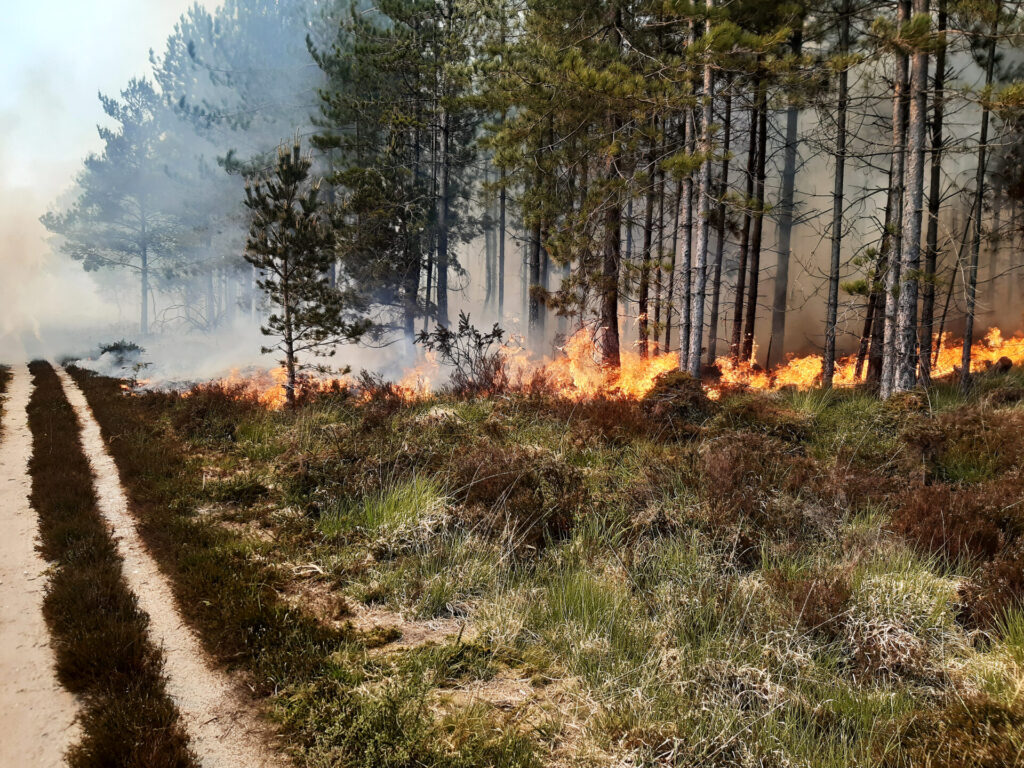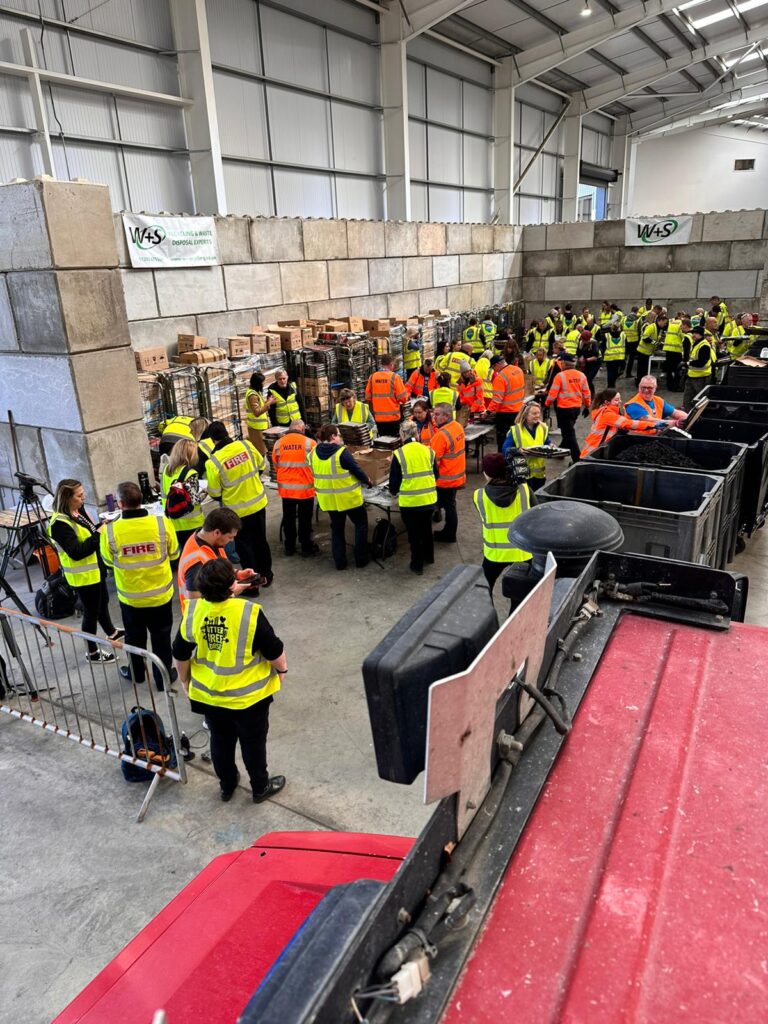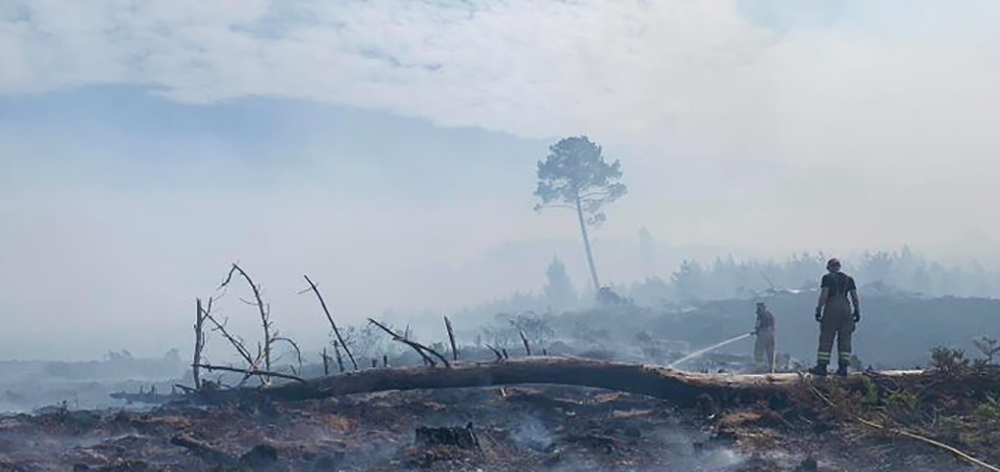Banned in Dorset on council land, disposable barbecues still pose an ever-increasing fire and environmental risk. Rachael Rowe reports

All images: Dorset & Wiltshire FRS
The fires that tore through Wareham Forest in 2020 and Studland in 2022 were among the worst wildfires ever seen in Dorset. Sadly, both were entirely preventable, the causes attributed to disposable barbecues. The fires caused significant damage to wildlife and the local area. So why do people continue to buy and use them? Dorset Council has recently taken a stand on disposable barbecues, putting a Public Spaces Protection Order in place.

Why are disposable barbecues a hazard?
Disposable barbecues are a significant fire and environmental hazard. They might be convenient for a day at the beach or an alfresco lunch. But if they are not correctly disposed of, they can lead to significant burning and fire hazards as well as wild fires. When disposable barbecues have been buried in the sand, which naturally retains and intensifies heat, people have suffered serious burns. If they end up in the sea, disposable barbecues pose a risk to marine life. Those left on dry land can quickly catch light and cause untold damage, as the ravaged Wareham Heath photographs show.
Dorset has significant areas of heathland, home to rare species such as smooth snakes and sand lizards, all at risk from wildfires.
According to figures from Dorset Fire and Rescue, there was a significant increase in fires involving barbecues in the five years to 2020 – in 2016 there were four incidents, rising dramatically to 74 in 2020 in Dorset.
Aside from the intrinsic fire risks, there is another issue with disposable barbecues. Designed for single use, they are not in any way environmentally sustainable.
Coals and other substances from them can leach into the soil, which is also a major hazard to wildlife. With this in mind, Dorset Council and Litter Free Dorset have been working with Southern Co-op to ban sales.

Co-operative action
In April, Dorset Council and Litter Free Dorset were able to take a significant step forward, raising awareness of the hazards and environmental impact of disposable barbecues.
When Southern Co-op decided to take disposable barbecues off their shelves, they found they had 8,000 to get rid of – responsibly. The company contacted Litter Free Dorset and worked with several other organisations across the county to dispose of the offending items appropriately. The dismantling operation (pictured above) took place at the massive W&S Waste Management warehouse at Canford Heath. ‘Sadly, we have witnessed the devastating impact that disposable barbecues can have to both people and wildlife if they are not disposed of responsibly,’ says Mark Smith, chief executive of Southern Co-op. ’Removing them from sale was an important move to protect our local wildlife and ecosystems, and was part of our commitment to reducing our environmental impact.
‘However, we also needed to be able to dispose of them responsibly. Thanks to Litter Free Dorset and a host of dedicated volunteers, this was made possible.’
Several large supermarket chains, including Waitrose and Aldi, have also pledged to remove disposable barbecues from sale.
A tricky separation
Litter Free Dorset co-ordinator Emma Teasdale says: ‘Of course we want people to enjoy their summer and make the most of our beautiful county, but this should not be at the cost of the environment. We are asking people to make the change by avoiding single-use items – including disposable barbecues – and to look for reusable alternatives. The dismantled barbecues weighed in at seven tonnes – that’s a lot of aluminium and coal,’ she says.
‘It took a team of 60 volunteers all day to unravel and sort the barbecues into their constituent parts, and everyone went home looking filthy. The entire exercise also demonstrated just how hard it is to dispose of these items appropriately – even when there is no rush and the barbecues are totally cold. It is so much harder when they are still hot!’
The coal was donated to Swanage Railway and other parts were separated for recycling. The metal grill sheets and foil trays were destined for the W&S scrap metal site and the paper and plastics were recycled locally.
Litter Free Dorset project officer Eimear Coyle said the feedback had been positive. ‘We’ve had a few shops approach us about stopping selling the disposable barbecues, and we are continuing to promote the messages about them. Dorset Council has already prohibited the use of disposable barbecues on its land.’

What can you do?
The obviously solution is to stop using disposable barbecues – do not buy them in the first place.
If you are a retailer, just stop selling disposable barbecues.

What about sky lanterns?
Another perennial problem, usually from weddings and festivals. More than 200,000 are released in England each year, and yes, they do look pretty. But there’s no knowing how far they will travel or where they will land. If they land in a field they are not only an obvious fire hazard but also traumatic to livestock Dorset and Wiltshire Fire and Rescue Service is firm in the opinion that they should never be used under any circumstances.




